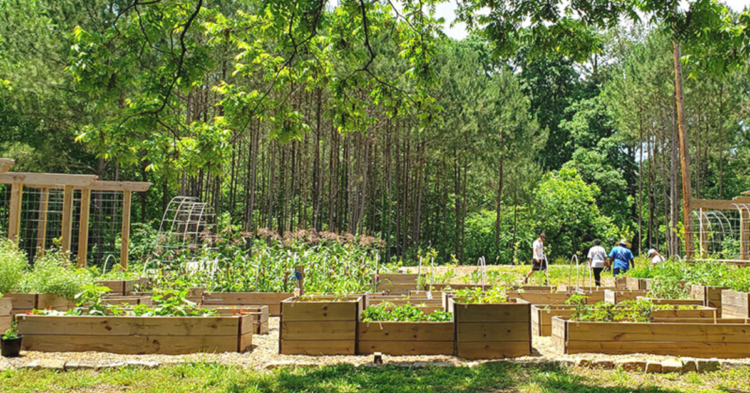In Atlanta, an abandoned property has recently been transformed into the U.S.’s largest free food forest . The story begins with a pecan farm in south Atlanta that was closed. The land was rezoned for residential buildings and earmarked for townhouses. But the townhouses were not built and the land remained foreclosed. Finally, in 2016, Atlanta’s Conservation Fund bought the land for the forest project.
The forest will help address food insecurity.

The forest is located in a neighborhood without a local grocery store. The closest store is 30 minutes away by bus. It is hoped that the forest will give the area’s residents easier access to healthy foods.
“Access to green space and healthy foods is very important. And that’s a part of our mission,” explained Michael McCord , the arborist who manages the forest. “We host lots of students for field trips, and for a lot of them, it’s their first time at a garden or farm or forest.”
The City of Atlanta, the Conservation Fund, and Trees Atlanta partnered to create the forest.

The forest is 7.1 acres large and has 2,500 edible and medicinal plants, all of which are pesticide-free. Access to grown food is particularly important for this area. As recently as 2014, it was illegal for residents to grow food on their lots in the city.
The forest is for everyone in the community.

Carla Smith, a city councilwoman involved with the project, said, “Every time I go there’s a community there who respects and appreciates the fresh healthy foods. There’s a mentality there that people know to only take what they need.”
The forest has helped to build a sense of community among residents. The forest is maintained with the help of over 1,000 volunteers. On any given day, there might be 50 volunteers working in the forest.
Edible parks are becoming popular.

Across the U.S., there are already 70 free food forests. Every year, thousands of pounds of food are harvested for their surrounding communities. This may be the future direction of urban agriculture.
And this is a direction that McCord supports. He said, “Everything out of a park space is a teachable moment, whether it be trees, trails, bees or vegetables. That’s what’s most important to me — that we’re raising awareness about sustainability and agriculture.”
h/t: CNN

















































